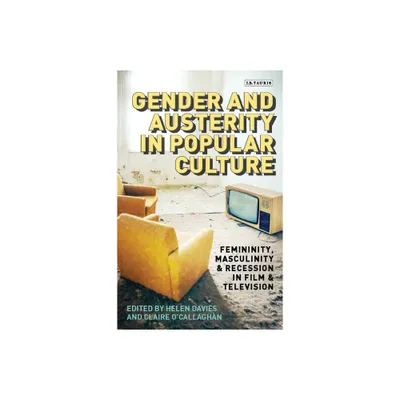Home
Colette's Republic: Work, Gender, and Popular Culture France, 1870-1914
Loading Inventory...
Barnes and Noble
Colette's Republic: Work, Gender, and Popular Culture France, 1870-1914
Current price: $135.00


Barnes and Noble
Colette's Republic: Work, Gender, and Popular Culture France, 1870-1914
Current price: $135.00
Loading Inventory...
Size: Hardcover
*Product Information may vary - to confirm product availability, pricing, and additional information please contact Barnes and Noble
"...a finely crafted study...The wealth of her scholarly evidence aside, Tilburg develops [her] arguments with magisterial care, resulting in a book that deserves the attention of all students of contemporary French history. Highly recommended." - Choice
In France's Third Republic, secularism was, for its adherents, a new faith, a civic religion founded on a rabid belief in progress and the Enlightenment conviction that men (and women) could remake their world. And yet with all of its pragmatic smoothing over of the supernatural edges of Catholicism, the Third Republic engendered its own fantastical ways of seeing by embracing observation, corporeal dynamism, and imaginative introspection. How these republican ideals and the new national education system of the 1870s and 80s-the structure meant to impart these ideals-shaped belle époque popular culture is the focus of this book. The author reassesses the meaning of secularization and offers a cultural history of this period by way of an interrogation of several fraught episodes which, although seemingly disconnected, shared an attachment to the potent moral and aesthetic directives of French republicanism: a village's battle to secularize its schools, a scandalous novel, a vaudeville hit featuring a nude celebrity, and a craze for female boxing. Beginning with the writer and performer Colette (1873-1954) as a point of entry, this re-evaluation of belle époque popular culture probes the startling connections between republican values of labor and physical health on the one hand, and the cultural innovations of the decades preceding World War I on the other.
In France's Third Republic, secularism was, for its adherents, a new faith, a civic religion founded on a rabid belief in progress and the Enlightenment conviction that men (and women) could remake their world. And yet with all of its pragmatic smoothing over of the supernatural edges of Catholicism, the Third Republic engendered its own fantastical ways of seeing by embracing observation, corporeal dynamism, and imaginative introspection. How these republican ideals and the new national education system of the 1870s and 80s-the structure meant to impart these ideals-shaped belle époque popular culture is the focus of this book. The author reassesses the meaning of secularization and offers a cultural history of this period by way of an interrogation of several fraught episodes which, although seemingly disconnected, shared an attachment to the potent moral and aesthetic directives of French republicanism: a village's battle to secularize its schools, a scandalous novel, a vaudeville hit featuring a nude celebrity, and a craze for female boxing. Beginning with the writer and performer Colette (1873-1954) as a point of entry, this re-evaluation of belle époque popular culture probes the startling connections between republican values of labor and physical health on the one hand, and the cultural innovations of the decades preceding World War I on the other.


















